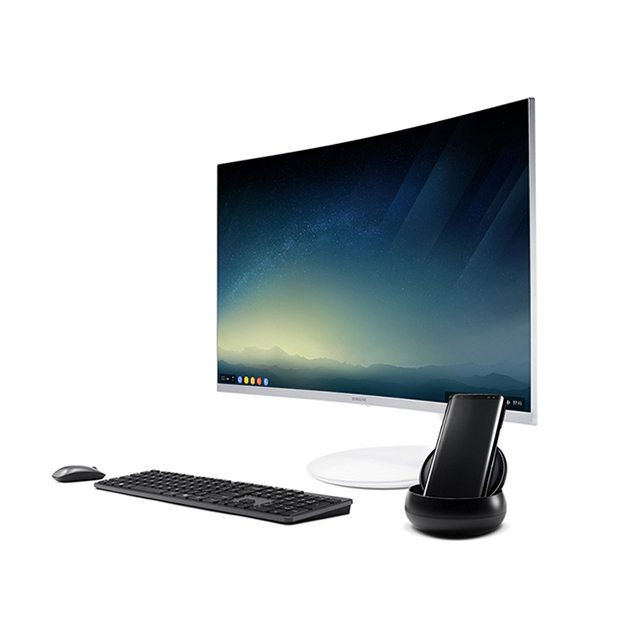NEW YORK – Samsung is looking to step further into the enterprise environment with its Galaxy S8 and S8+ smartphones.
At its Unpacked 2017 event, held in New York City on March 29, Samsung announced its DeX platform, which is designed to transform the S8 into a personal computer. The launch was aligned with Samsung’s vision of a network of connected devices and highlighted its view on transforming the global workforce towards a mobile future.
Once the S8 is plugged into the DeX, it provides a Google Android operating system-based “desktop” experience. The DeX Station connects the smartphone to an HDMI compatible monitor, and connects to any Bluetooth-enabled, USB or RF-type keyboard and mouse. Samsung said the platform is designed to improve productivity for mobile professionals while reducing the need to carry multiple computing devices.
Injong Rhee, CTO of the Mobile Communications Business at Samsung Electronics, said DeX was developed with the highly mobile worker in mind to provide a convenient and flexible desktop experience. Indeed, Samsung said it worked in collaboration with key partners such as Adobe and Microsoft to ensure their suites are formatted for current enterprise-focused applications, including support for Citrix Receiver, Amazon Workspaces and VMware Horizon.
Mario Laffitte, VP for marketing and corporate affairs for Latin America at Samsung, told RCR Wireless News the combination of DeX and the company’s Knox security platform defines a new era for enterprise-focused applications.
“It is the beginning of new corporate uses for smartphones,” Laffitte said. “You can make your smartphone become your PC.”
Laffitte also noted that Knox handles enterprise security demands, protects both device hardware and software and supports the most popular MDM, EMM, SSO and VPN solutions.
“You separate in the device what’s personal from what’s corporate, providing a security environment,” Laffitte noted.
The company is also set to work closely with companies to present the new solution.
“I believe there’s a huge market to explore,” Laffitte added.
Editor’s note: Travel costs were provided by Samsung.

